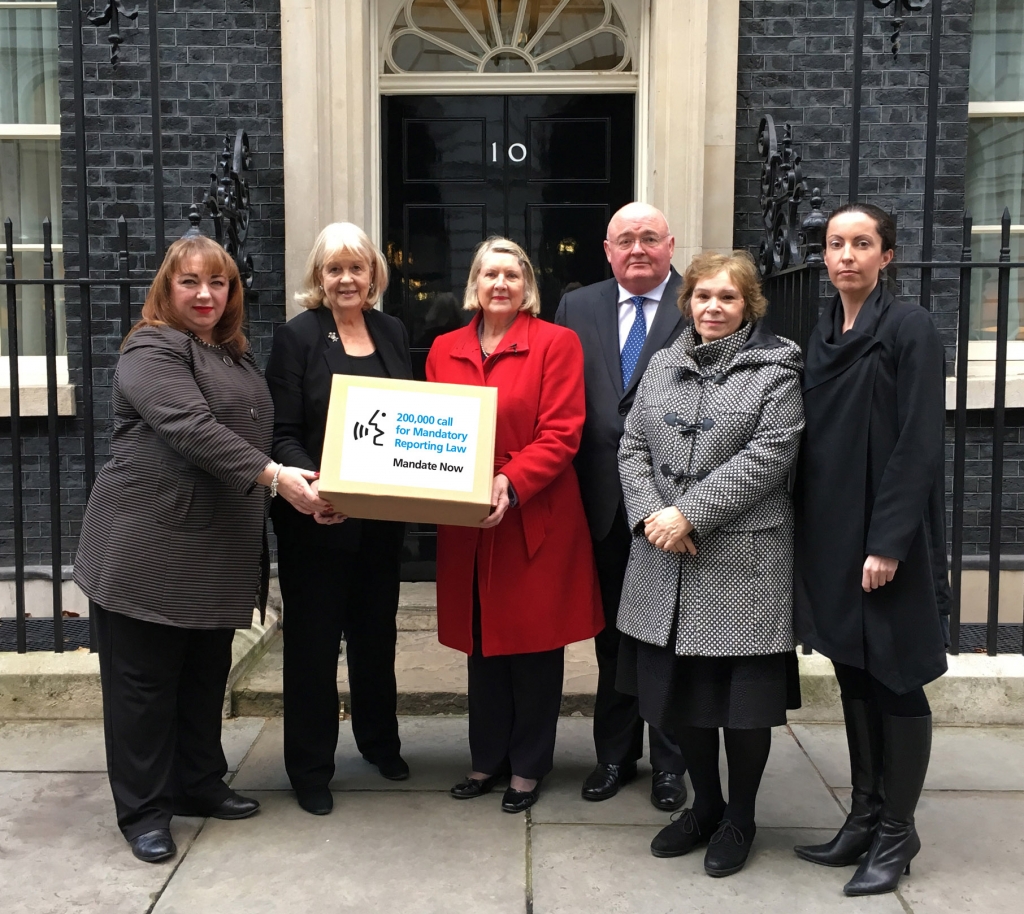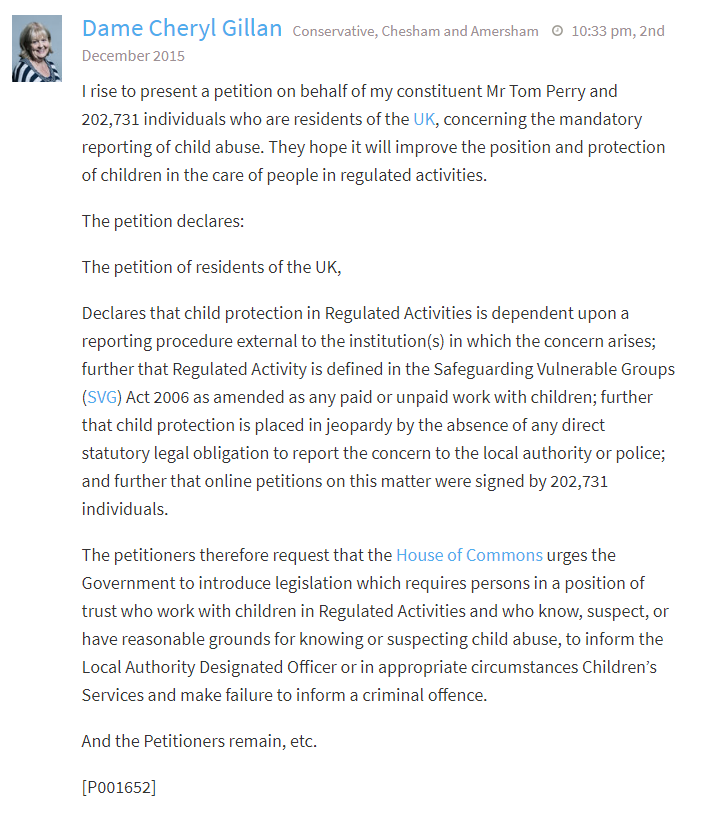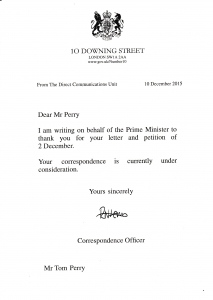On 28th October 2014 the government through Lord Bates ceded the consultation on mandatory reporting during the Serious Crimes Bill debate.
The ‘delay clock’ finally stopped on 21st July 16 when the Government commenced the consultation. The announcement was buried in multiple statements released to the House on the day the Parliamentary recess commenced. It also coincides with the start of the holiday season when Education, the largest Regulated Activity, is away for six weeks.
On 2 December 2015 Mandate Now handed in our petition signed by more than 200,000 to Downing Street. This was supported by a cross party delegation of politicians including the Rt Hon Cheryl Gillan MP for Amersham and Chesham who was joined by her constituent Mandate Now founder Tom Perry, Liberal Democrat Peer Baroness Walmsley who was instrumental in securing a government consultation on mandatory reporting during the passage of the Serious Crimes Bill through the House of Lords, Sharon Hodgson MP – Shadow Children’s Minister leading on Child Protection who was an early signatory to the petition, Fay Maxted OBE the Chief Executive of The Survivors Trust which supports our objectives and Natalie Brammer of Mandate Now.
Our press release can be read here

From Left to right – Sharon Hodgson MP, Rt Hon Cheryl Gillan, Lib Dem Peer Baroness Walmsley, Tom Perry, Fay Maxted OBE , and Natalie Brammer.
Following the handing in at No.10, and after a long day in the House of Commons which was debating Syria, Cheryl Gillan presented our petition on the floor of the House – the petition can be read here.
Following delivery of the petition Mrs Gillan went to Parliament and presented he petition on the floor of the House :

BBC 3 Counties Radio (Beds Bucks and Herts), which includes Cheryl Gillan’s constituency of Chesham and Amersham, led on the campaign and petition throughout the morning programme on 4.12.15. This excellent introduction set the scene:
An excellent interview with Peter Saunders of NAPAC followed: https://goo.gl/0i68OJ
The programme concluded its coverage with an interview with Mandate Now: https://goo.gl/QNiDiv
In the last minute of this interview, Mandate Now was asked to comment on the NSPCC telling the programme that it does not have a clear position on Mandatory Reporting, and it would wait until the outcome of the forthcoming consultation on the issue. A comment was provided.
On 10th December a letter of acknowledging our petition was received from 10 Downing Street.
What happens after a public petition has been presented?
Regardless of how a public petition is presented to the House of Commons, the journey it takes afterwards does not differ. Public petitions are printed in Hansard (the official report of the proceedings of Parliament).
The text of the public petition is then sent to the Government department responsible for the matter with which it is concerned. The Government’s observations are also printed in Hansard and once printed, a copy is sent to the Member who presented the public petition.
The Petitions Committee can also recommend further action on a public petition, for example, recommending a debate in Westminster Hall or sending the petition to the relevant Select Committee. More information is available from the Petitions Committee.

